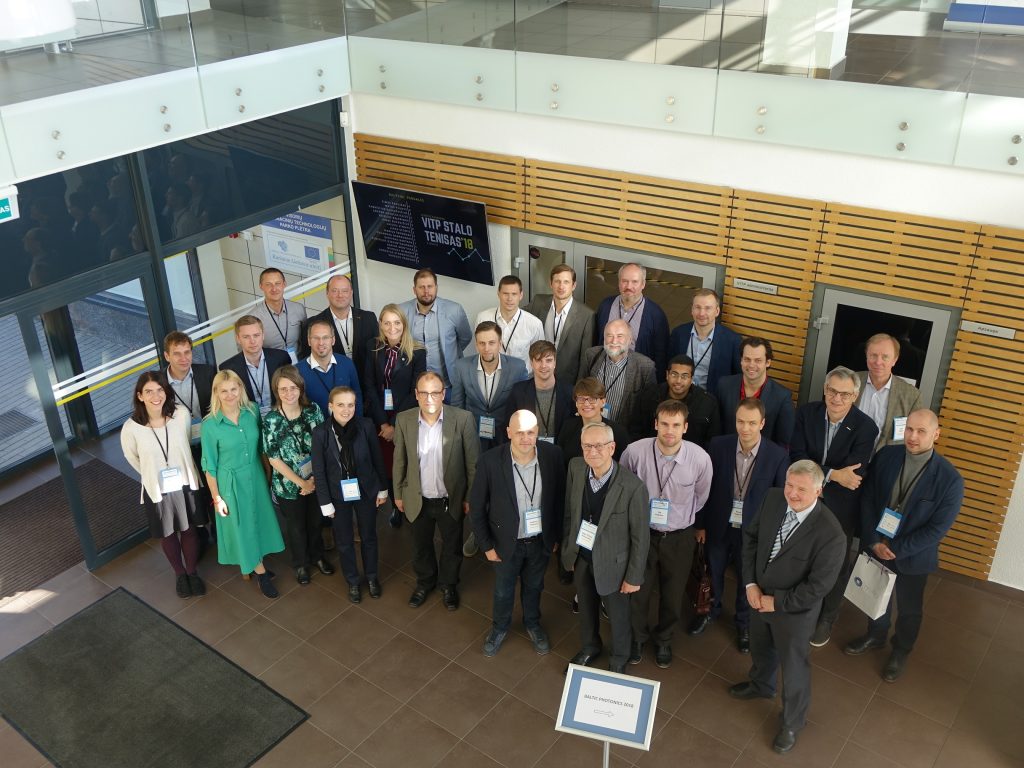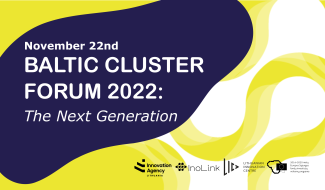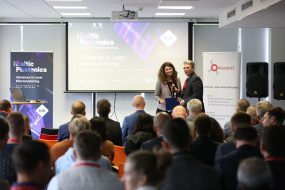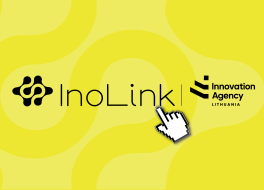Open collaboration is the path to success in the lasers and photonics sector

The advanced sector of photonics is the pride of Lithuanian science and economics, the core of which is unique lasers and innovations in their application. On October 17-18, the Agency for Science, Innovation and Technology (MITA), together with the Lithuanian Innovation Centre (LIC) and the Visoriai Technology Cluster (VITEK), invited the leaders of the sector from Lithuania, Latvia, Estonia and Germany to an international event Baltic Photonics 2018.
The event provided an opportunity to present the newest projects under development, establish partnerships and share experience; it also confirmed the fact which the community of photonics had been aware of for decades – open and intensive cooperation is one of the key elements leading to success in the photonics sector in Lithuania.
Not competition, but co-petition
“About 80 percent of innovative photonics products developed in Lithuania are exported to almost 100 foreign countries and used in prestigious business and science institutions throughout the world. The reason for such international demand is multidimensional – innovativeness, high quality, competitive prices and enormous efforts on international markets,” Mr Kęstutis Šetkus, Director of MITA, commented on the benefits of events dedicated for search for international partners. According to him, the result of the development of internationality is not only financial benefit, but also the creation of conditions for the development of world-class innovation, therefore promotion of international cooperation in various target sectors is one of the priorities of MITA.
The fact that the photonics sector in Lithuania has its distinctive and well-developed culture of co-operation was also emphasized by Prof. Habil. Dr. Algis Petras Piskarskas, who read the main report in the event.
“I propose a new definition – co-petition. This is a model used by Lithuanian laser companies in their work, which successfully creates a high added value,” said Prof. Habil. Dr. A. P. Piskarskas.
Created a supportive environment
The international partner search event Baltic Photonics 2018 was organized for the first time. It lasted for two days and was attended by approximately 40 participants, who presented the latest achievements in a contact fair and visited several Lithuanian photonics research institutions as well as the companies Ekspla Ltd and MGF Šviesos konversija. At the event, reports were read by Prof. Habil. Dr. Algis Petras Piskarskas, the president of the Lithuanian Laser Association, the heads of the companies Optogama and Eksma Optics, the coordinator of the cluster LITEK, the representatives of the companies Laservision GmbH & Co. KG, Menlo System, COTEC GmbH, etc.
“Our goal is to create a platform for discussions in order to ensure a possibility to enter into smooth and efficient business contacts in the photonics sector, without prior registrations and rigid frames,” commented one of the organizers, Ms Rasa Gofman, the VITEK cluster coordinator, on the format of the event.
A limited number of participants and their selection on the basis of common interest received positive evaluation.
“The compact and flexible form of the event has really proved its value: each larger and especially smaller company got time and the right tools not only to introduce itself, but also to find a potential partner and to discuss the conditions of possible cooperation,” said a participant of the event, the head of EKSMA UAB and the director of the Lithuanian Laser Association Dr. Petras Balkevičius.
An order received during the presentation
The meetings of the photonics community create a favourable environment for talented newcomers seeking to establish themselves. For example, Mr Tadas Lipinskas, the head of Optogama, a member of the VITEK cluster, said that during the event Baltic Photonics 2018, he managed to make several useful contacts, which are very important for a young company. In addition, he received an offer for collaboration in a quite unique way – immediately after his presentation, the participants from Latvia expressed their desire to order a product of Optogama tailored to their excimer lasers.
“The participants took an active part in the meetings, discussions and even exchange of product samples. Although we did not make any special arrangements, the German delegation gathered at the event, and we intend to cooperate with them at the level of the German and Baltic Chambers of Commerce. We have not yet been able to contact everyone to discuss the results, but there will be more success stories for sure,” the VITEK cluster coordinator shared his optimistic insights related to the naturally established partnerships.
Cooperation not only on paper
According to the organizers of Baltic Photonics 2018, as much as 80-90 per cent of the participants represented clusters.
In Lithuania, several clusters are successfully operating in the field of photonics: the Laser and Engineering Technology Cluster (LITEK), the Baltic Photonics Cluster and VITEK and the Lithuanian Laser Association. The event was organized by LITEK and the Baltic Photonics Cluster, and the visits of companies were organized by all clusters along with the Association.
Cooperation in the photonics sector has been fostered for many years, and in Lithuania it has created a natural need to gather into clusters. VITEK is the youngest, however, it has well-defined ambitions.
“We have plans for expansion because cluster members receive tangible benefits. For example, it saves time and combines competences since the latest literature is reviewed and analysed in the field of planned research, market overviews are performed, etc.”, said Ms R. Gofman.
Baltic Photonics 2018
Baltic Photonics 2018 was funded by the InoLink project. InoLink is a project of the EU measure Inogeb LT, which is implemented by MITA together with the Lithuanian Innovation Centre. The aim of the project is to promote the merging of companies into clusters, to increase the maturity of clusters, to promote growth and international cooperation. The project and its activities are funded by the European Regional Development Fund.



